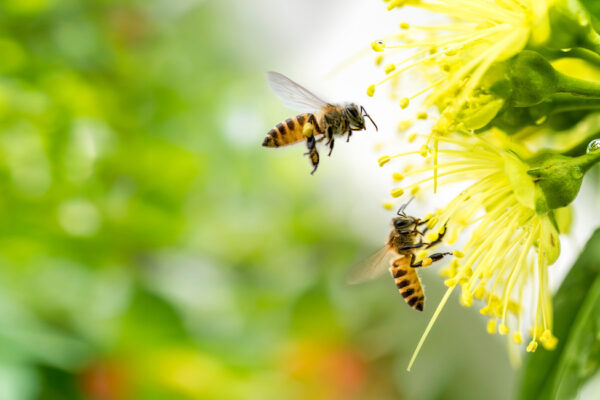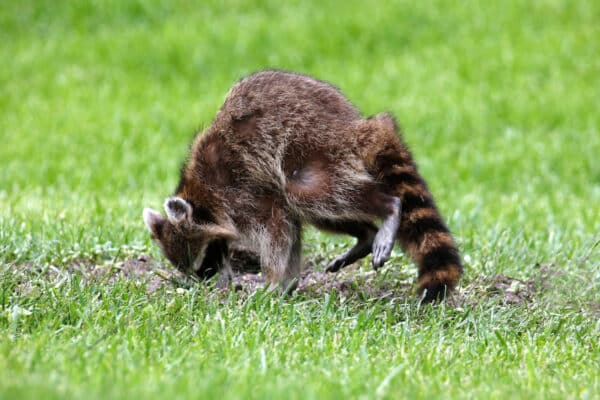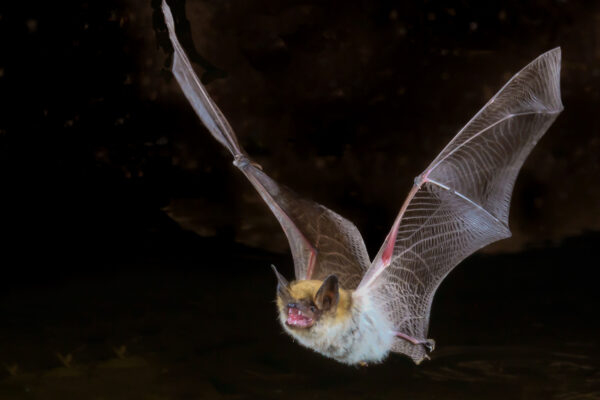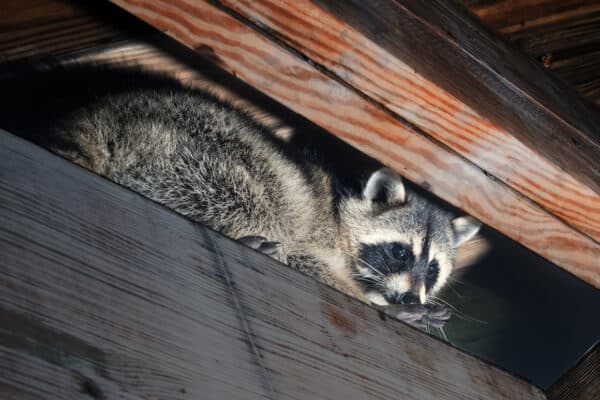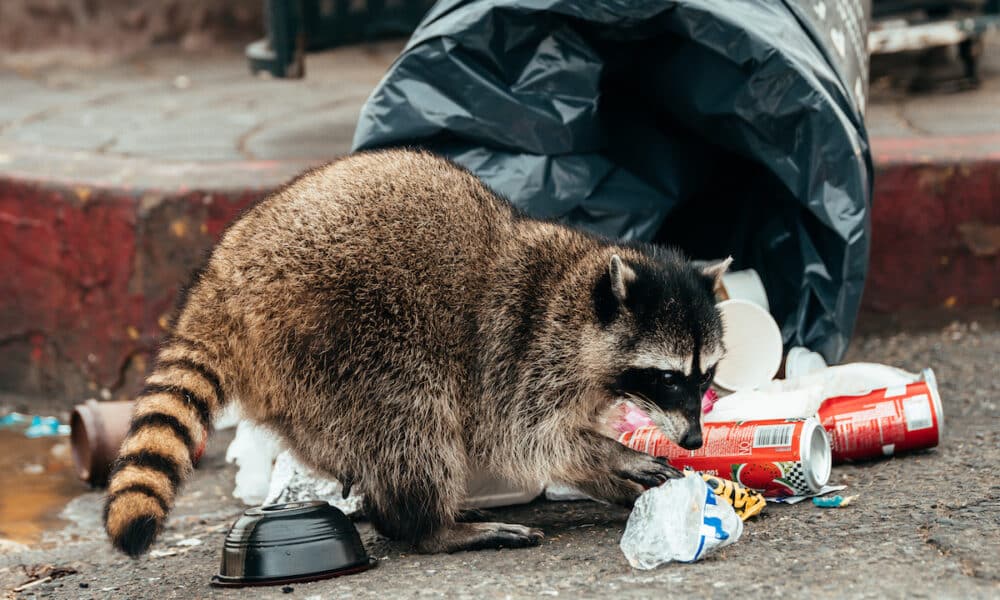
It’s important for homeowners to understand facts about raccoons and how they live. But why?
Raccoons are a common wildlife species that can cause significant damage to homes and property. Understanding their habits can help homeowners take steps to prevent raccoons from wreaking havoc on their property, minimizing the risk of damage and disease transmission.
For example:
- If you understand that raccoons are good climbers, you can take steps to install barriers on downspouts, gutters, and other surfaces that raccoons can climb.
- If you understand that raccoons are intelligent and curious animals, you can ensure they don’t enter your home by keeping doors and windows closed and locked at night, and by sealing holes or gaps in your home’s exterior.
- If you understand that raccoons are nocturnal, opportunistic feeders, and carriers of diseases you can recognize the signs of raccoon activity on your property and take steps to prevent it. Some of these steps may include:
- Securing trash cans and compost bins with tight-fitting lids
- Installing motion-activated lights or sprinklers to deter raccoons from entering their yard at night
- Avoiding contact with raccoons to minimize the risk of disease transmission
These are just some of the reasons it’s important for you to understand raccoons and how they live. Continue reading for five surprising facts about raccoons and tips for humane removal.
Five Facts About Raccoons
Raccoons are one of the most common wildlife species in North America.
While they may look cute and fuzzy, they can cause significant damage to homes and property.
Here are five surprising facts about raccoons that you, as a homeowner, need to know in order to better understand these animals and keep them from causing damage.
Fact 1: Raccoons are Excellent Climbers
Raccoons are highly skilled climbers and can climb almost any surface, including:
- Trees
- Walls
- Roofs
- Downspouts
- Gutters
This skill makes it easy for them to enter homes and cause damage. They can also cause damage to the roof of your home by tearing off shingles and roof vents and getting into your attic.
You can prevent raccoons from climbing onto your property by keeping trees trimmed away from the house and installing barriers on downspouts, gutters, and other surfaces that raccoons could climb.
“Raccoon baffle” is another option. This can be placed on the pole supporting bird feeders and prevents them from climbing up and accessing the feeders.
Fact 2: Raccoons are Very Smart and Curious Animals
Raccoons are highly intelligent and curious animals. They are able to solve problems and remember solutions, which means they can easily learn how to get into food sources in and around your home.
For example, if a raccoon discovers that it can access pet food by tipping over a trash can, it will remember and return to the same location to get to the food again.
This intelligence and curiosity causes raccoons to explore homes and create damage.
Raccoons can easily:
- Open doors and windows
- Tear holes in screens
- Crawl through vents
To prevent raccoons from getting inside your home, make sure you keep your doors and windows closed and locked at night and seal any holes or gaps in your home’s exterior.
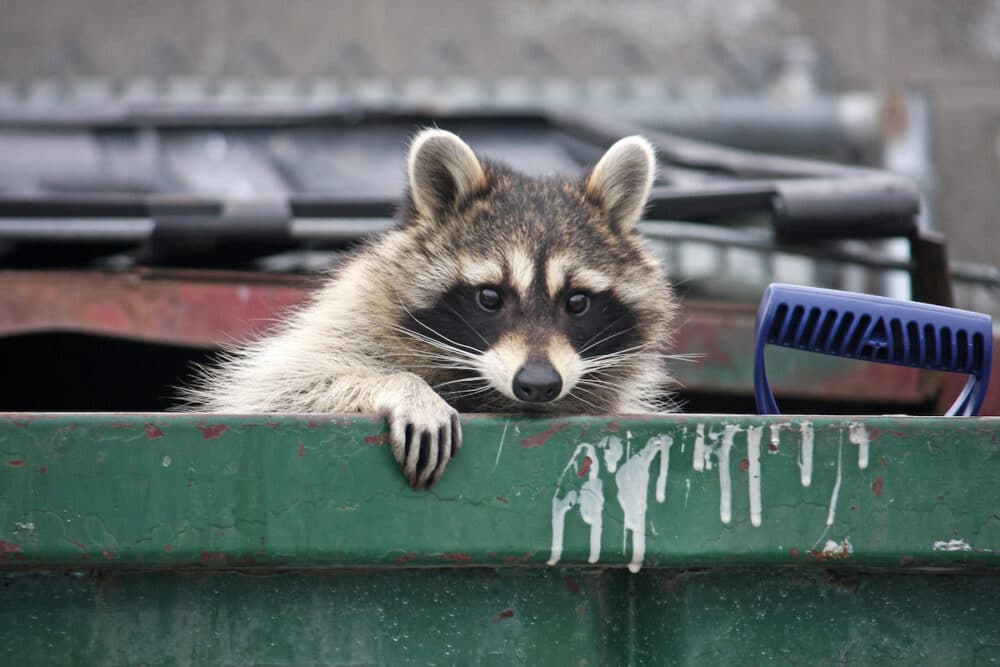
Fact 3: Raccoons are Nocturnal Animals
Raccoons are nocturnal animals, which means they are most active at night. This is why it is often difficult for homeowners to spot raccoon activity on their property.
It’s also important to note that raccoons are most active in the spring and summer months when they are breeding and taking care of their young.
To recognize signs of raccoon activity on your property, look for:
- Pawprints
- Damage to your trash can or bird feeders
- Damage to your garden or lawn
If you hear noises in your attic or walls at night, it’s possible that raccoons have made their way into your home. If you find this to be true, don’t hesitate to call our team at Covenant Wildlife for assistance!
Fact 4: Raccoons Will Feed on Anything
Raccoons are omnivores and will eat almost anything, including pet food, garbage, and garden vegetables. Because of this, raccoons are attracted to homes and are known to raid trash cans, tear up gardens, and eat pet food left outside.
To prevent raccoons from getting into your leftovers, it’s important to secure your trash cans and compost bins with tight-fitting lids. You can also install motion-activated lights or sprinklers to spook raccoons when they enter your yard at night. If you have a vegetable garden, consider installing a fence or placing chicken wire over your plants to keep raccoons out.
Fact 5: Raccoons can Carry Harmful Diseases
Raccoons can carry a variety of diseases, including:
- Rabies
- Leptospirosis
- Salmonella
These diseases can be transmitted to humans and pets through bites or scratches, or feces.
To protect yourself and your pets from diseases carried by raccoons, it’s important to avoid contact with them whenever possible. If you suspect that a raccoon on your property is sick or injured, do not attempt to approach or handle it on your own. One indicator of a sick raccoon is if they are out and moving about during the day.
Contact your local wildlife removal service to safely remove the animal.
Tips for Humane removal
Humane raccoon removal is important to ensure that the animals are not harmed during the removal process.
Here are some tips for humane raccoon removal:
Contact a Professional Wildlife Removal Service
It’s important to contact a professional wildlife removal service to safely and humanely remove raccoons from your property.
They have the knowledge, experience, and equipment needed to safely trap and relocate the raccoons without hurting them.
Use Humane Traps
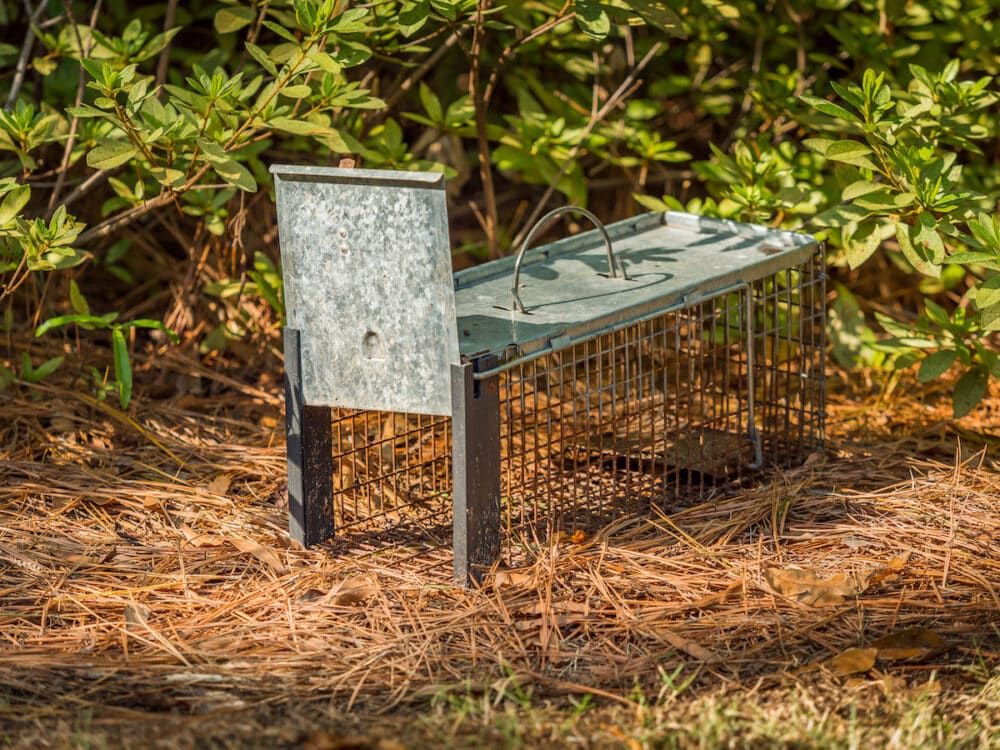
If you plan to trap raccoons on your property, it’s important to use traps that are designed to catch the animals without hurting them.
These traps typically have a door that closes when the raccoon enters the trap, allowing for the safe removal and release of the animal.
Release Raccoons in a Safe Location
Once raccoons are captured, they should be released in a safe location, such as a nearby wooded area or park, and away from residential areas.
It’s important to release raccoons during the daytime to give them the best chance of survival.
Prevent Future Raccoon Activity
To prevent future raccoon activity on your property, it’s important to pinpoint entry points or food sources that may be attracting the raccoons.
Do this by sealing any holes or gaps in your home’s exterior, securing trash cans and compost bins with tight-fitting lids, and trimming back trees and bushes that give them easier access to your roof.
If you run into a raccoon on your property, keep the following tips in mind:
Stay Away
Avoid contact with raccoons, as they can be carriers of diseases such as rabies. If you see a raccoon on your property, keep a safe distance and do not approach or try to handle the animal.
Secure Food Sources
As we mentioned, raccoons are opportunistic feeders. They are attracted to food sources like trash cans and compost bins.
To keep raccoons from getting into these food sources, make sure you secure them with tight-fitting lids or store them somewhere inside, like your garage.
Install Deterrents
Motion-activated lights or sprinklers can keep raccoons from entering your yard at night. They will startle and scare them off. This will hopefully deter them from causing damage to your property.
Contact a professional
If you know there is a raccoon on your property and you want to get rid of it, contact your friends at Covenant Wildlife to remove it safely.
Additionally, if you suspect that a raccoon on your property is sick or injured, do not put yourself in harm’s way by attempting to approach or handle it. Contact your local wildlife removal service right away to get rid of the animal safely.
By following these tips, you can help ensure humane raccoon removal and protect your property and family from potential damage and disease transmission.
Know Facts About Raccoons to Keep Them Away
As you can see, raccoons can cause significant damage to homes and property if they are not properly managed and understood.
By learning these five surprising facts about raccoons, homeowners can take the right steps to prevent them from accessing their homes and food sources.
Our best tips for this include:
- Keeping trees trimmed away from the house
- Securing trash cans and compost bins
- Sealing any holes or gaps in the home’s exterior
If you do encounter a raccoon on your property, it’s important to avoid contact and to contact a wildlife removal service right away so that they can safely remove the animal and release it in a more suitable environment.
By taking these steps, homeowners like you, can coexist with raccoons and minimize the risk of property damage and disease transmission. With a little effort and knowledge, it’s possible to enjoy the beauty of wildlife in your backyard while protecting your home and family.
Are you still searching for a local wildlife removal service to remove raccoons? At Covenant Wildlife Removal, we are known as a top-rated local full-service wildlife trapping, removal, repair, and insulation services company. We provide safe and humane wildlife services in Jefferson and Shelby counties in Alabama. Contact us or call 205-255-9524 to set up an inspection!
